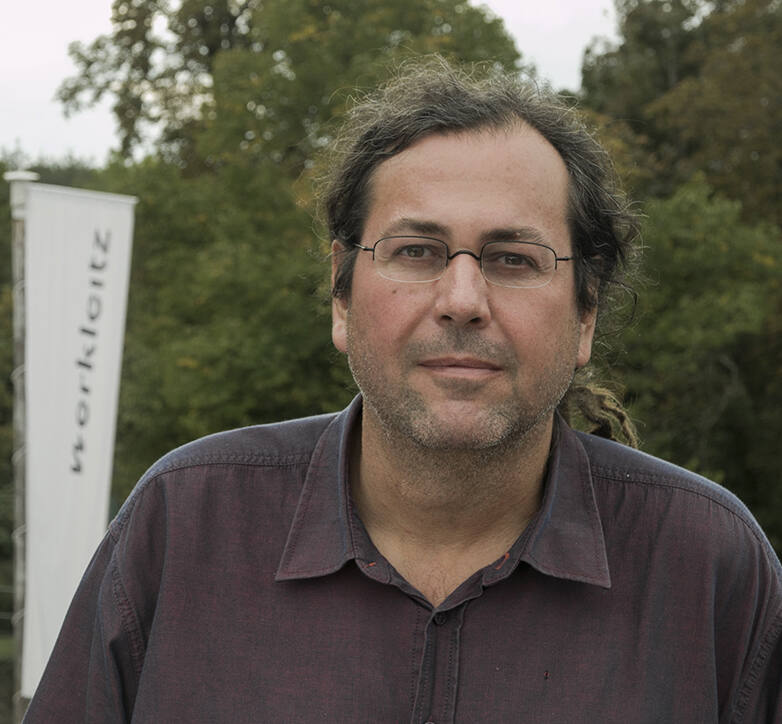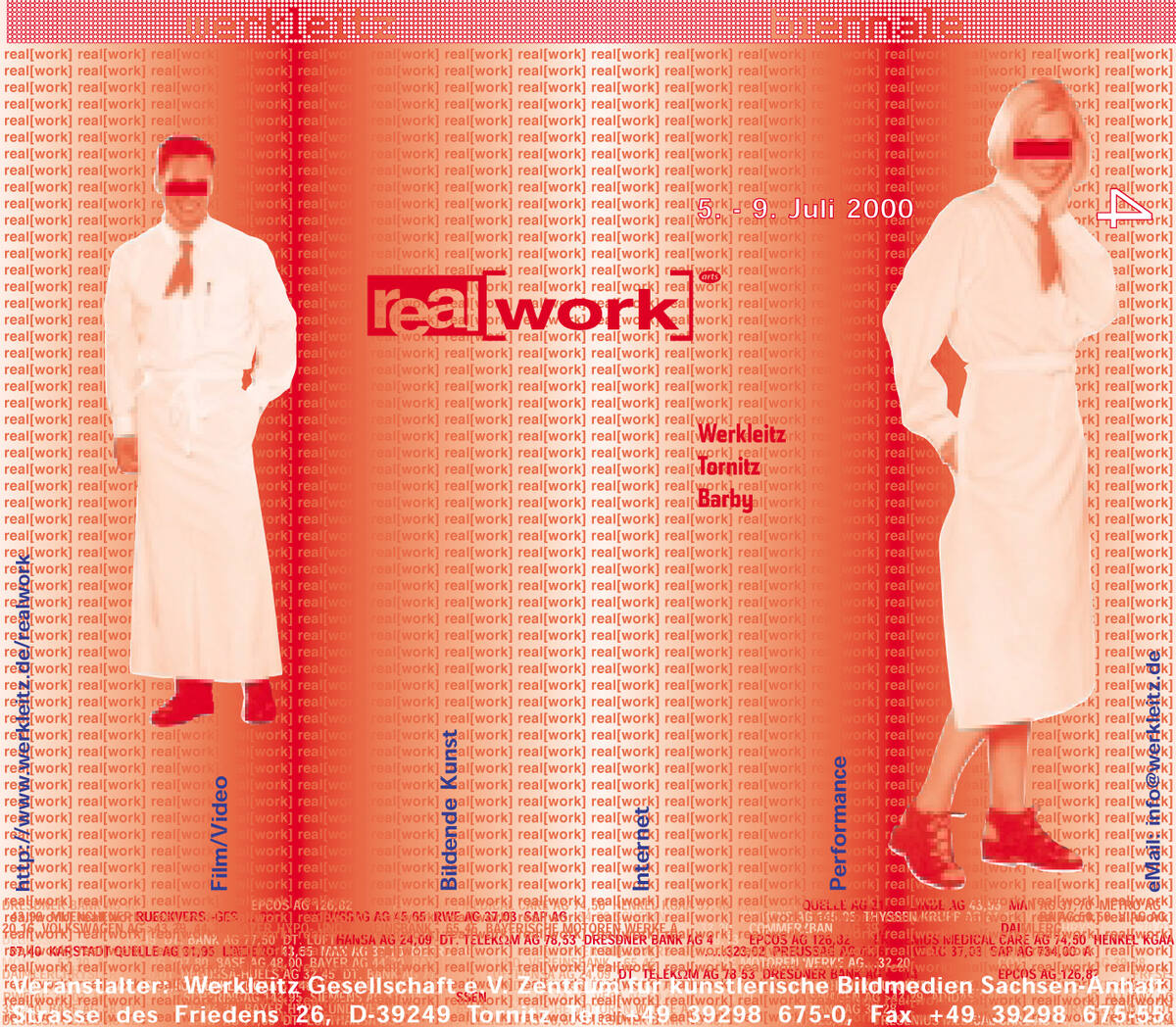4. Werkleitz Biennale
real[work]
Personen
Media
The transformation and the future of work seem to be the central topic of our time. Under the headline of real[work], the 4. Werkleitz Biennale picks up on this existential problem and its consequences for the practice of art.
The economic restructuring of society from formerly mainly industrial production into a society dominated by a service and information based economy is a process which affects the entire cultural web. In this process, 'work' seems to a central given fact, no longer simply described in terms of labour in exchange for money, but encompassing a wide variety of newly defined social relationships, i.e. new areas of activity and vocations (teleworking); altered forms of company structures (de-centralisation) and public communication. The re-evaluation of work caused by the technical revolution coincides with corporations forming trusts within the so-called globalisation. This has led to a de-evaluation of the traditional differences of class and status for the individual. The social orientation through fixed professional definitions and long-term employment seems to be an increasingly futile effort. But so far binding and connecting models for action and behavior, fitting the new forms of distribution and demands of work, have failed to be established.
This fundamental transformation also creates new parameters for artistic production. In an 'involuntary leisure society' it becomes increasingly difficult to draw a line between art and the entertainment and service industry. In order to escape being usurped by the cultural industry and the market, anarchic positions of denying the traditional work ethic have gained a new importance. The re-emergence of seemingly value-less (or non value-creating) absurd activities and disruptions of work processes aim at creating a critical distance toward this societal development. At the same time various artistic approaches, by reflecting and documenting these dramatic changes, have created a discerning interest in understanding. Whereas these critical-reflexive positions may claim a mainly political relevance, the recently developed crossover-strategies can expound on a so far rarely explored experimental potential for the search for new fields of activity and models of production. It is also true that a positive definition of artistic production in the creative and self-realising context provides meaning and orientation far beyond the realms of artistic professions.
In the region of Saxony Anhalt, the site of the Werkleitz Biennale, this concern of real[work] is particularly significant: for several years now the local unemployment rate of more than 20% has topped the statistics in Germany. The sudden loss of traditional work in the wake of the closureof many East German industrial plants after the rationalisation or western take-overs and the concurrent establishment of information and service- providing businesses, one of which is the Werkleitz Gesellschaft, embody two extreme poles in this rural region, which real[work] attempts to reconcile in a constructive tension/relationship.
real[work] seeks out artistic positions reflecting on the societal
process of 'transforming work'. It does not attempt to solve political and cultural problems, but wants to present and discuss critical comments on the definition of work. Six guest curators chose works by artists from the fields of visual arts, film/video, internet and performance art. The programme of the Biennale is enhanced by lectures, discussions and a commissioned documentary video production on the topic of real[work] and the event itself.

